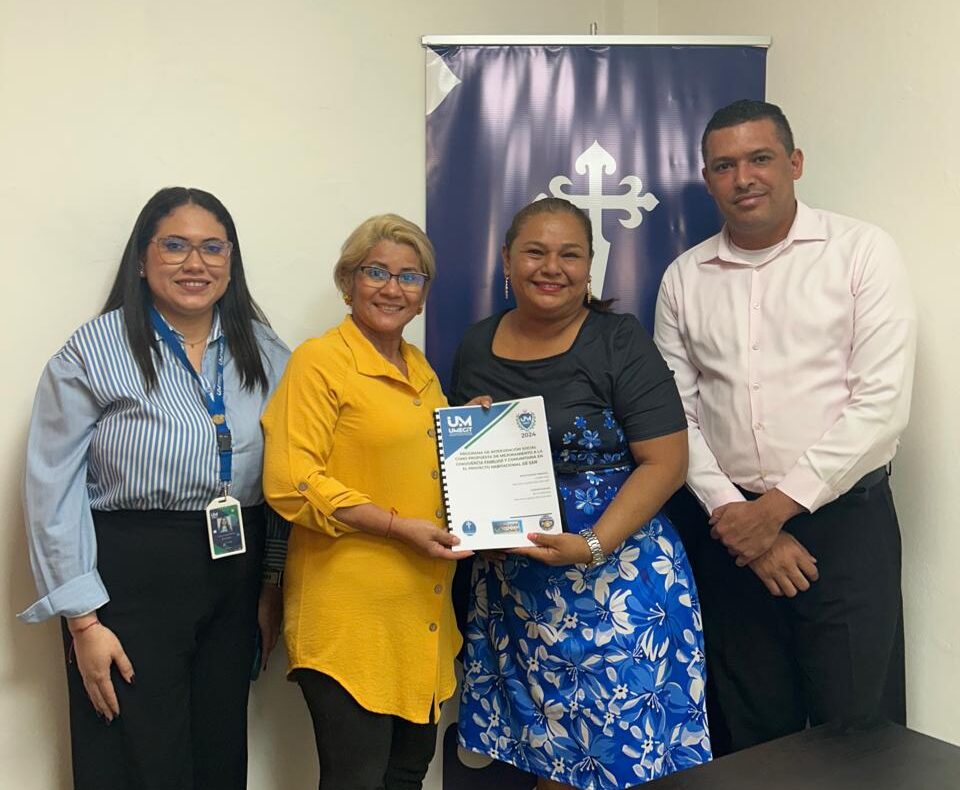A few days ago, the Santiago campus of the Metropolitan University of Education, Science and Technology -UMECIT- officially submitted to the Mayor's Office of Santiago the final report of the research entitled "Social intervention program as a proposal to improve family and community coexistence in the San Antonio housing project".
The district's deputy mayor, Bernardina Pardo, received the document on behalf of the Mayor's Office. It is worth noting that the municipal leader was also part of the research team, accompanying and supporting its progress.
The study was led by Professor Yazmín Díaz as principal investigator and Professor Betsy Miranda as co-investigator, with the active participation of students from the Bachelor's Program in Social Work and Human Development. The proposal included four community interventions focused on training in self-esteem, conflict resolution, and family coexistence, using participatory and interactive methodologies.
The research was conducted in partnership with the Santiago Mayor's Office, the Nuevo Santiago Community Council, and the RT Physical and Mental Health Clinic, consolidating a collaborative effort between academia, institutions, and the community to promote social well-being.
The findings showed significant progress in the community:
The study also revealed the need to promote productive training spaces that allow residents to acquire tools to start businesses, develop businesses, and enhance their skills.
In this sense, the UMECIT Extension Directorate projects the initiative “Strengthening female leadership and cooperative development in Torres de San Antonio”, which includes the creation of a cooperative for artisanal production and marketing. This effort seeks to empower women as agents of change and generate a self-management model based on solidarity, teamwork, and social cohesion.
This research process allowed Social Work and Human Development students to engage in real-life projects, strengthening their research skills and commitment to social transformation. As a result, a university thesis derived from this research is currently being developed, reaffirming the impact of these experiences on academic and professional development.



